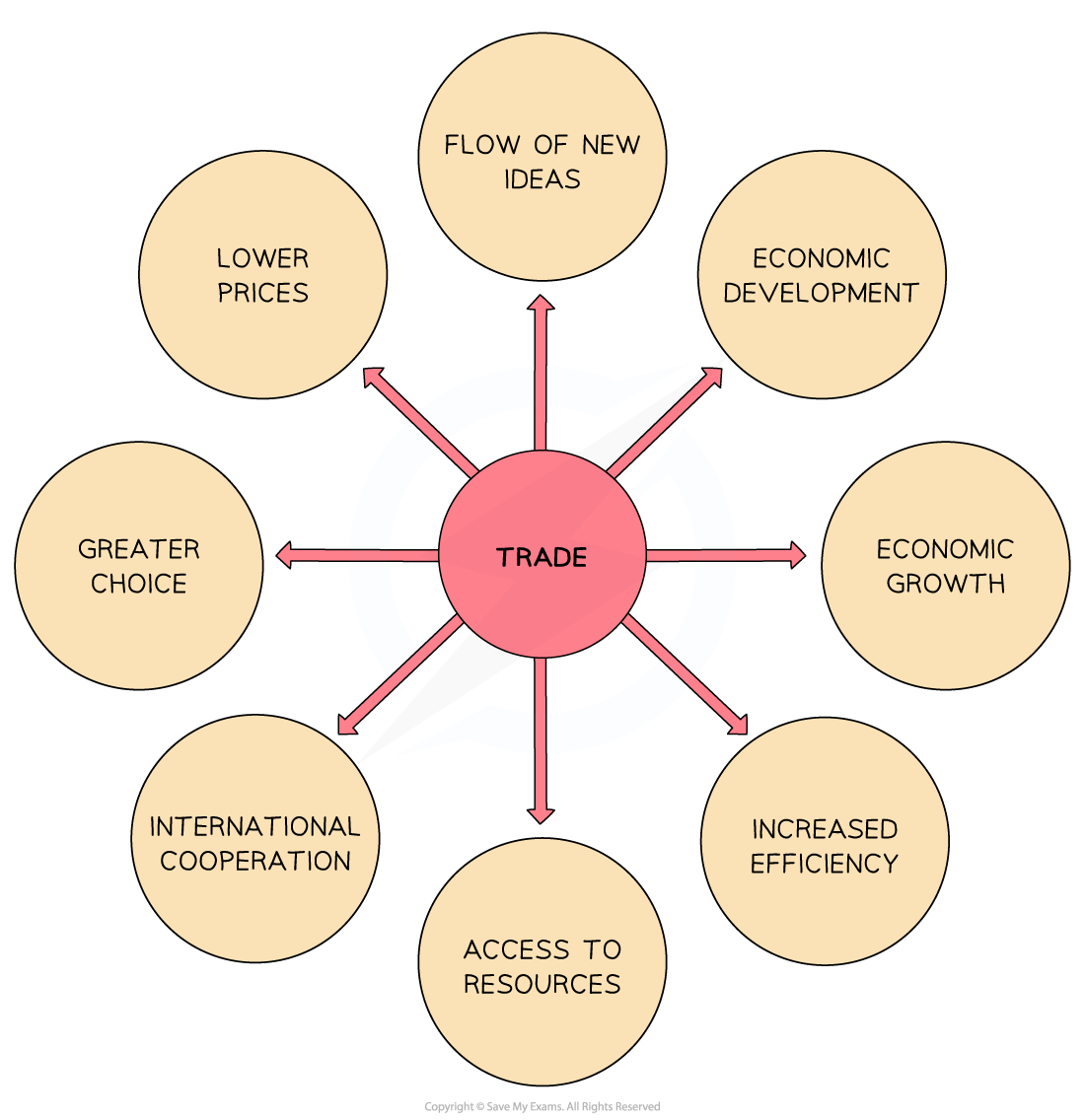Syllabus Edition
First teaching 2025
First exams 2027
Free Trade (Cambridge (CIE) IGCSE Economics): Revision Note
Exam code: 0455 & 0987
The advantages of free trade
Free trade is the exchange of goods and services between countries without any trade barriers, such as tariffs, quotas or import bans
This means countries can buy and sell freely with each other, allowing for more open access to foreign markets

Greater choice
With access to a wider variety of goods/services, the standard of living improves
Lower prices
With international competition prices fall, giving households the ability to buy more
International cooperation
Required for trade, it helps countries to build better relationships, which leads to lower levels of hostilities
Flow of new ideas
Innovative ideas and technology can be shared between countries
Access to resources
Output can increase and costs of production can fall with increased access to raw materials
Increased efficiency
International competition allows the most efficient firms to emerge and this improves the use of global resources
Economic growth
Exports are a key component of the gross domestic product of many countries and an increase in exports can lead to economic growth
Economic development
Increased output leads to lower levels of unemployment, which leads to higher incomes and a higher standard of living
The disadvantages of free trade
Harm to domestic industries
Without protection from foreign competition, local firms may struggle to survive
This can lead to business closures and job losses in certain sectors
Over-dependence on imports
Countries may rely too heavily on other nations for essential goods, such as food, fuel or medicine
This can be risky if global supply chains are disrupted
Job losses
Free trade can lead to structural unemployment as less competitive industries shrink or shut down in the face of cheaper imports
Worsening trade balance
Some countries may import more than they export, leading to trade deficits which can create long-term economic problems
Unequal gains
While some countries and firms benefit, others may be left behind
Smaller or less developed economies can find it hard to compete fairly
Environmental damage
Transporting goods across the world increases carbon emissions
Also, some countries may ignore environmental standards to stay competitive
Exploitation risks
Firms may shift production to countries with lower wages and weaker labour laws, leading to poor working conditions and inequality

Unlock more, it's free!
Was this revision note helpful?
